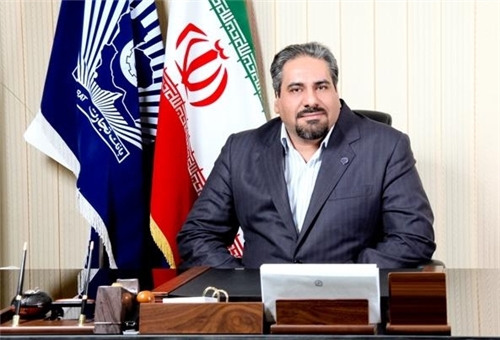 TEHRAN (FNA)- The European Union (EU) plans to lift its sanctions against Iran�s Bank Tejarat, the banks president announced on Tuesday.
TEHRAN (FNA)- The European Union (EU) plans to lift its sanctions against Iran�s Bank Tejarat, the banks president announced on Tuesday.�Fortunately, the EU has on its agenda the removal of its sanctions on Bank Tejarat and the bank�s branches in Paris, France, and Dushanbe, Tajikistan, stand atop the list of priorities,� Managing Director of Tejarat Bank Mohammad Reza Fallah said today.
He underlined that Bank Tejarat had played an important role in Iran�s foreign exchange activities despite the restrictions that it has been faced with in the last 18 months that it has been under the EU sanctions.
In June, Britain's Supreme Court lifted sanctions against Iran's Mellat Bank describing them "irrational" and "disproportionate".
The UK's highest court ruled that the government was wrong to have imposed sanctions on an Iranian bank in 2009 over alleged links to Iran's nuclear program.
The Supreme Court decision mirrored a January ruling by the European Union's General Court, which overturned sanctions imposed in 2010, and could result in the bank suing Britain for damages.
In a majority judgment, Supreme Court Judge Jonathan Sumption said that the British government had been "arbitrary", "irrational" and "disproportionate" to single out Bank Mellat, Iran's largest private bank, for sanctions, Alalam reported.
Bank Mellat has long denied allegations against its activities and argued that it had not been consulted before sanctions were imposed.
It also questioned the Supreme Court's use of secret sessions for the first time, excluding the bank from parts of the proceedings, though a majority of the nine judges ruled that it was appropriate in this case.
"Today's ruling is a victory for the rule of law as much as it is for Bank Mellat," said Sarosh Zaiwalla, a senior partner at the bank's law firm Zaiwalla & Co Solicitors.
The British government's sanctions on Bank Mellat prevented the whole of the UK's financial sector from having any business relationship with the bank. Sanctions imposed on the bank by the United States remain in place.
Wednesday's rulings come against the backdrop of a debate over the use of secret evidence in British courts. The government is keen to extend the use of so-called Closed Material Procedures to civil court cases.
It was the first secret session in the Supreme Court's history and meant that all the evidence was not shown to the bank itself.
Late in January, Managing-Director of Bank Mellat (the largest private bank in Iran) Ali Divandari announced that his bank has been removed from the European Union's sanctions list.
"After two and a half years of intensive legal work to remove the sanctions, the court declared a ruling in support of Bank Mellat," Divandari said.
In August, the Council of the European Union reversed its decision for imposing sanctions against Divandari after the latter party filed a complaint at international bodies and sued the EU over its illegal action.
The Zaiwalla & Co solicitors represented Dr. Divandari's case in the European Court of Justice to challenge the legality of the sanctions.
Bank Mellat has been fighting US accusations of involvement in confidential financial activities to help fund Iran's nuclear activities.
The EU Council had listed Divandari in the designated list in July 2010 on the basis that it was a legitimate part of its regime of sanctions designed to stop Iranian nuclear program. He was at the time Chairman of Bank Mellat.
The Council had designated the Bank Mellat and it considered it to be involved in Iran's attempts to develop a nuclear program and then went a step further, said Zaiwalla, by deciding to personally designate the Bank's chairperson too on the basis of his job title.
Both the bank and Divandari challenged the sanctions in the European Courts. After a long process, both were finally given a hearing before the General Court of the European Union in May 2012. Both parties presented their cases and argued that it was not lawful to impose sanctions against private sector institutions or their employees. Iran's private sector has no role to play in the acts of the Iranian state, they argued.
By Fars News Agency
The Iran Project is not responsible for the content of quoted articles.











